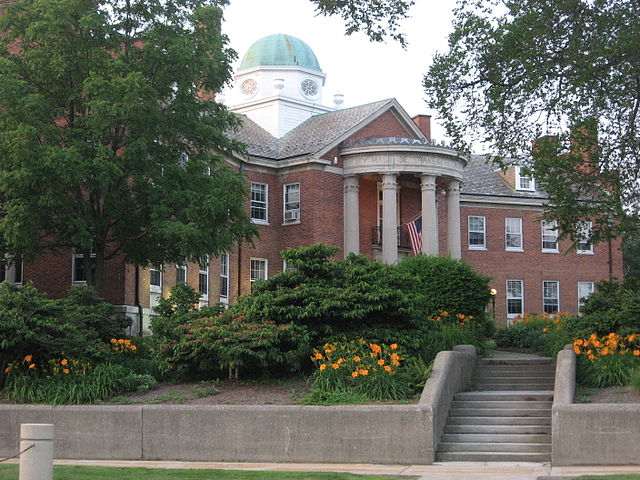On Feb. 22, 2024, residents of the JCU-owned apartments in Shaker Heights called themselves “collateral damage” as a part of the “Building Inspired Futures” campaign in an interview with 19 News. While there have been some past rumblings about the future of restaurants on the circle like Pizzazz on the Circle and Biggby Coffee, most of the new worries stem from the apartment buildings that surround the intersection.
Construction projects around John Carroll are a controversial topic for students and faculty alike. This detestation spills over to the larger community, especially when these initiatives tend to specifically focus on the progress of the institution and not the surrounding area. Nevertheless, these strong emotions have not been a deterrent for the university’s progress, even if it means angering the neighbors of future Blue Streaks.
In the fall, John Carroll will offer student housing in the first set of these buildings that are under renovation with the remaining three falling in line by fall of 2026. However, the trajectory of this project could be put off course by Shaker Heights residents who currently live in these complexes. Because of city borders, the building that lies within the bounds of University Heights is fair game for construction. But, the other structures in Shaker are not being relinquished without a fight.
“It has diversity, it has a thriving economy, a wide variety of ages living together in community,” Maria Tayek, a resident of one of the buildings, said during a public hearing. Others echoed these thoughts, with some more focused on the logistics of moving after long standing tenures in the buildings, while some considered the implications of having a higher density of college students living in the area. Specifically, resident Iris Taylor Heard said in the hearing that “college students who are acting like normal college students” could make life difficult for current tenants of the area.
John Carroll President Alan Miciak combats Heard’s statement, telling The Carroll News “I would argue that there are no better neighbors than John Carroll students.”
“Many students were already living there,” he continued. “We’re going to work with everyone as best we can and want to be a good neighbor about it… our position is that it doesn’t change the character of the neighborhood. Our students have been living there for a decade.”
This all comes during the middle of what cleveland.com calls a “pause” on the Gateway Project due to current market conditions. After reopening its public hearing of the apartment complex renovations on Jan. 9, 2024, the commission was met with concern from community members on the potential declining integrity of their neighborhood. In response, JCU reevaluated their strategy and included “six multi-family complexes” in the draft of the plan.
However, this isn’t enough for Shaker Heights residents who currently live in the apartments. During a Feb. 12 hearing, the city council added two amendments to the agreement, one of which included “changing the commercial district the apartments are located in to commercial mixed-use.” JCU also added amendments “to include off-campus student and multi-family housing” and “to extend the distance from campus housing… from 500 feet to 1,500 feet” in the agreement. The last amendment is controversial for residents as it could signal further expansion of the university, more than what is already making headlines.
After this reading of the zoning code and the amendments, the proposal was sent back to the Shaker Heights Planning Commission and was discussed at a March 5 meeting.
Those with concerns over relocating have been given what JCU’s AVP of Facilities Jeremiah Swetel calls “rent forgiveness and packages to help them relocate.” Swetel also told The Carroll News that the university has owned the apartments on the circle for 20 years and that the residents were given notice on the coming renovations. Swetel also told cleveland.com that no leases in these buildings were being broken by these actions.
“JCU’s vitality and financial success benefits both Shaker and University Heights, the apartments, shopping center and student activity provide the cities and schools with tax revenue,” Swetel told The Carroll News. “Our initiative for students to have a four-year University-sponsored residential experience will help sustain the University, provide for a more robust student experience, a vibrant Fairmount Circle area, attract interest from businesses and provide the cities with tax revenue.”
The previous zoning agreement is on hold and will be revisited during an April 2 hearing. Until then, John Carroll has assured that it will move forward with its renovations in a manner that ultimately benefits the students and their ability to integrate into the campus community.



